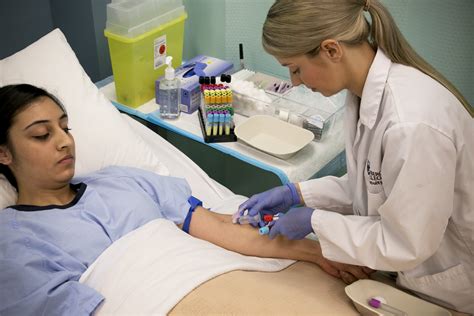Title: The Ultimate Phlebotomy Guide: Everything You Need to Know
Meta Title: Complete Phlebotomy Guide | A Comprehensive Resource for Phlebotomists
Meta Description: Our comprehensive phlebotomy guide covers everything from essential skills and training requirements to career opportunities and best practices in the field.
Introduction:
Phlebotomy is a critical aspect of healthcare that involves the collection and transportation of blood samples for analysis. Phlebotomists play a crucial role in the medical field by ensuring the accuracy and integrity of blood samples, which are essential for diagnosing and treating patients. If you’re considering a career in phlebotomy or simply want to learn more about this fascinating field, you’ve come to the right place. This comprehensive guide will provide you with all the information you need to know about phlebotomy, whether you’re a student, a healthcare professional, or just someone interested in the medical field.
Essential Skills and Training:
Becoming a successful phlebotomist requires a unique set of skills and specialized training. Here are some of the essential skills and qualifications you’ll need to excel in this field:
1. Venipuncture: The ability to perform venipuncture, which involves drawing blood from veins, is a fundamental skill for phlebotomists. Proper technique and knowledge of anatomy are crucial to ensure patient comfort and accurate sample collection.
2. Communication: Phlebotomists must have excellent communication skills to interact with patients, explain procedures, and alleviate any fears or concerns they may have. Building rapport with patients is essential for a positive patient experience.
3. Attention to Detail: Precision and accuracy are critical in phlebotomy to avoid sample contamination or mislabeling. Phlebotomists must pay close attention to detail to ensure the integrity of blood samples and patient safety.
4. Medical Knowledge: Understanding basic medical terminology, anatomy, and laboratory procedures is essential for phlebotomists to perform their duties effectively and collaborate with other healthcare professionals.
Training Requirements:
To become a certified phlebotomist, individuals typically need to complete a phlebotomy training program and pass a certification exam. Training programs are available at vocational schools, community colleges, and online institutions. The duration of training can vary from several weeks to a few months, depending on the program’s structure and requirements.
Benefits and Practical Tips:
– Job Stability: Phlebotomy is a growing field with high demand for skilled professionals in healthcare settings such as hospitals, clinics, laboratories, and blood donation centers.
– Career Advancement: Experienced phlebotomists may have opportunities for career advancement, such as becoming a phlebotomy supervisor or transitioning into related fields like medical assisting or nursing.
– Professional Development: Continuing education and certification in phlebotomy can enhance your skills, credentials, and marketability in the job market.
Case Studies:
Sarah, a recent phlebotomy graduate, secured a job at a local hospital after completing her training program and obtaining certification. She enjoys the hands-on nature of her work and the opportunity to interact with patients daily.
John, a seasoned phlebotomist, decided to pursue additional certification in specialized areas like pediatric phlebotomy. He now works in a pediatric clinic, where he can apply his specialized skills and provide exceptional care to young patients.
Conclusion:
Phlebotomy is a rewarding and essential profession in the healthcare industry, offering diverse career opportunities and the chance to make a meaningful impact on patients’ lives. Whether you’re considering a career in phlebotomy or want to learn more about the field, this comprehensive guide has equipped you with the knowledge and skills needed to succeed. Keep exploring and expanding your expertise in phlebotomy to reach your full potential in this dynamic and fulfilling field.
